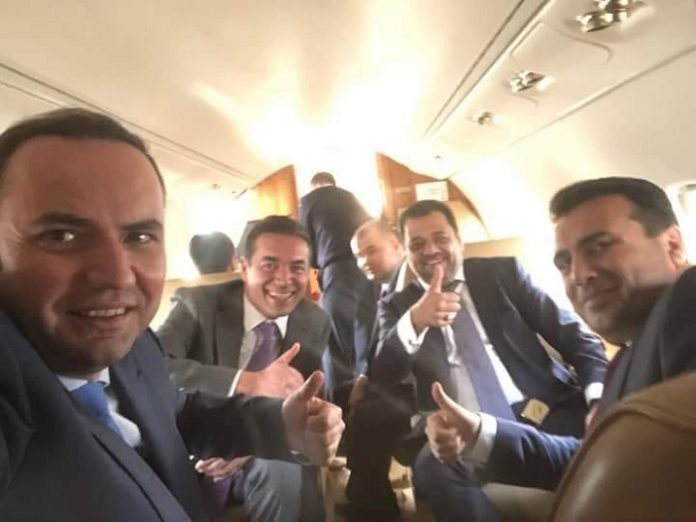Prime Minister Zoran Zaev confirmed today that Bulgaria has blocked the opening of EU accession talks with Macedonia. At the meeting of EU ambassadors in Brussels today, the Bulgarian ambassador rejected a proposal from Germany, which holds the EC rotating presidency, to accept a negotiating framework.
We have the first blockade from Bulgaria. Today article 2 of the Friendship treaty was violated. We did not violate it before with anything we did. This is the first unpleasant feeling. We need to be smart and resolve the dispute in a friendly manner. Today a not so friendly message was sent to us from neighboring Bulgaria and the first step was blocked. Article 2 of the treaty states that Bulgaria should support us on our road to EU integration, Zaev said.
This is a major defeat for Zaev’s policy to ensure Macedonia’s accession into EU and NATO by making endless concessions to nationalist demands from Bulgaria and Greece. Macedonia did join NATO, after the painful concessions of the Prespa treaty with Greece, but for the bulk of the population, which did not support the imposed name change on the 2018 referendum, the main silver lining was the possible EU membership and its economic perks, not joining NATO. Now this prospect, however distant, got even further away from the country.
Zaev said that there is still time until the meeting of the European Council on November 17, and his visit to Sofia for the Berlin process, where he said he hopes to meet with Prime Minister Borisov, if his health allows it after the recent coronavirus infeciton. “There is also intensive communication through the foreign affairs departments and I trust we will find a creative solution”, Zaev said. Germany was strongly involved in trying to break the impasse, but it was apparently not successful.
Bulgaria opened the spiral of downward exchanges with a request that Macedonia declares legendary VMRO hero and national liberation leader Goce Delcev as an ethnic Bulgarian, insisting that it has the right to this under the 2017 Zaev – Borisov friendship treaty. Macedonian historians were unwilling to accept the full extent of the Bulgarian demands, which then led to a strongly worded Bulgarian memorandum to the European Council. In it, Bulgaria explains its views on the Macedonian nation and language, as derived from the Bulgarian, and asks that these positions are made part of the accession process. Other demands include further statements that Macedonia will not support the demands of the Macedonian minority in Bulgaria, avoiding the mention of the Macedonian language in the EU, and even restrictions on the imposed name “North Macedonia” as it could be seen as announcing territorial claims on Bulgarian lands.




Comments are closed for this post.